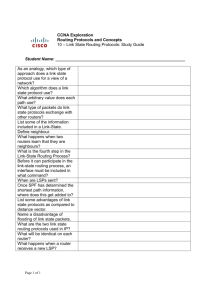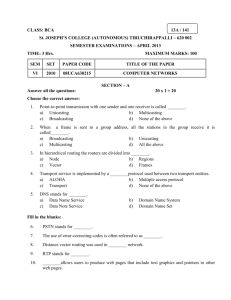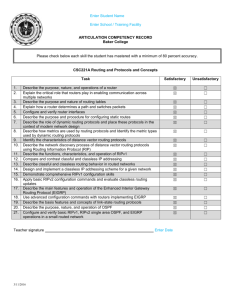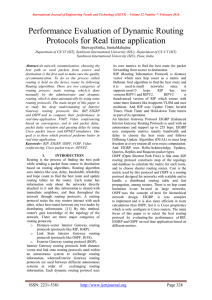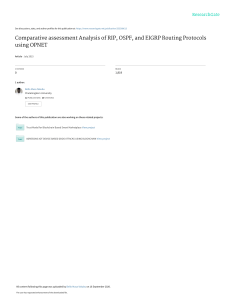Project Demo
advertisement
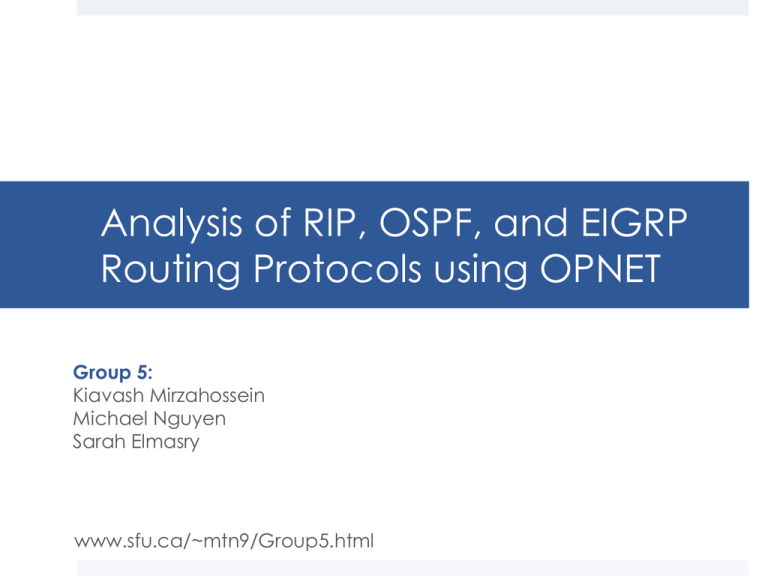
Analysis of RIP, OSPF, and EIGRP Routing Protocols using OPNET Group 5: Kiavash Mirzahossein Michael Nguyen Sarah Elmasry www.sfu.ca/~mtn9/Group5.html Introduction Analyze the performance of the following routing protocols: RIP: Routing Information Protocol OSPF: Open Shortest Path First EIGRP: Enhanced Interior Gateway Routing Protocol Create small and large network topologies to evaluate the impact of network size on routing behavior Objective: To compare the performance of RIP, OSPF, and EIGRP routing protocols and suggest best routing protocol for a given network topology 2 Routing Protocols Routing occurs on the network layer Routing Protocol: Specify how routers communicate Determines the best routing path to a destination Routers use routing tables to identify routes to particular network destinations Goal is to achieve fast convergence Convergence: Process of updating routing tables Types of Routing Protocols: Static: network is fixed (no nodes added/removed) Dynamic: changes allowed in topology using routing tables Distance-vector vs. Link-state algorithms 3 Implementation We implemented 4 network topologies on OPNET 16.0: 1. 2. 3. 4. Small Ring Small Mesh Large Mesh Large Tree Each topology included a link failure at 300 seconds followed by a link recovery at 480 seconds We obtained routing tables for the small ring topology We compared the convergence and routing traffic sent results of RIP, OSPF and EIGRP on each network 4 Results EIGRP has fastest convergence for all network topologies and uses bandwidth efficiency OSPF: Performs better than RIP on larger topologies Converges faster after link failure than link recovery or initial network setup RIP: Only suitable for small networks For large topologies RIP wastes bandwidth with full periodic updates 5
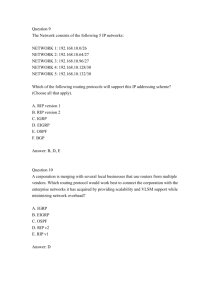

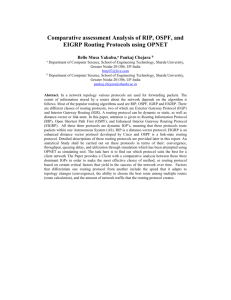
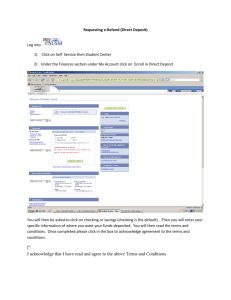
![Internetwork & TCP/IP [Opens in New Window]](http://s3.studylib.net/store/data/008490208_1-eaf10231908f97f1b47b18fe3c507663-300x300.png)
